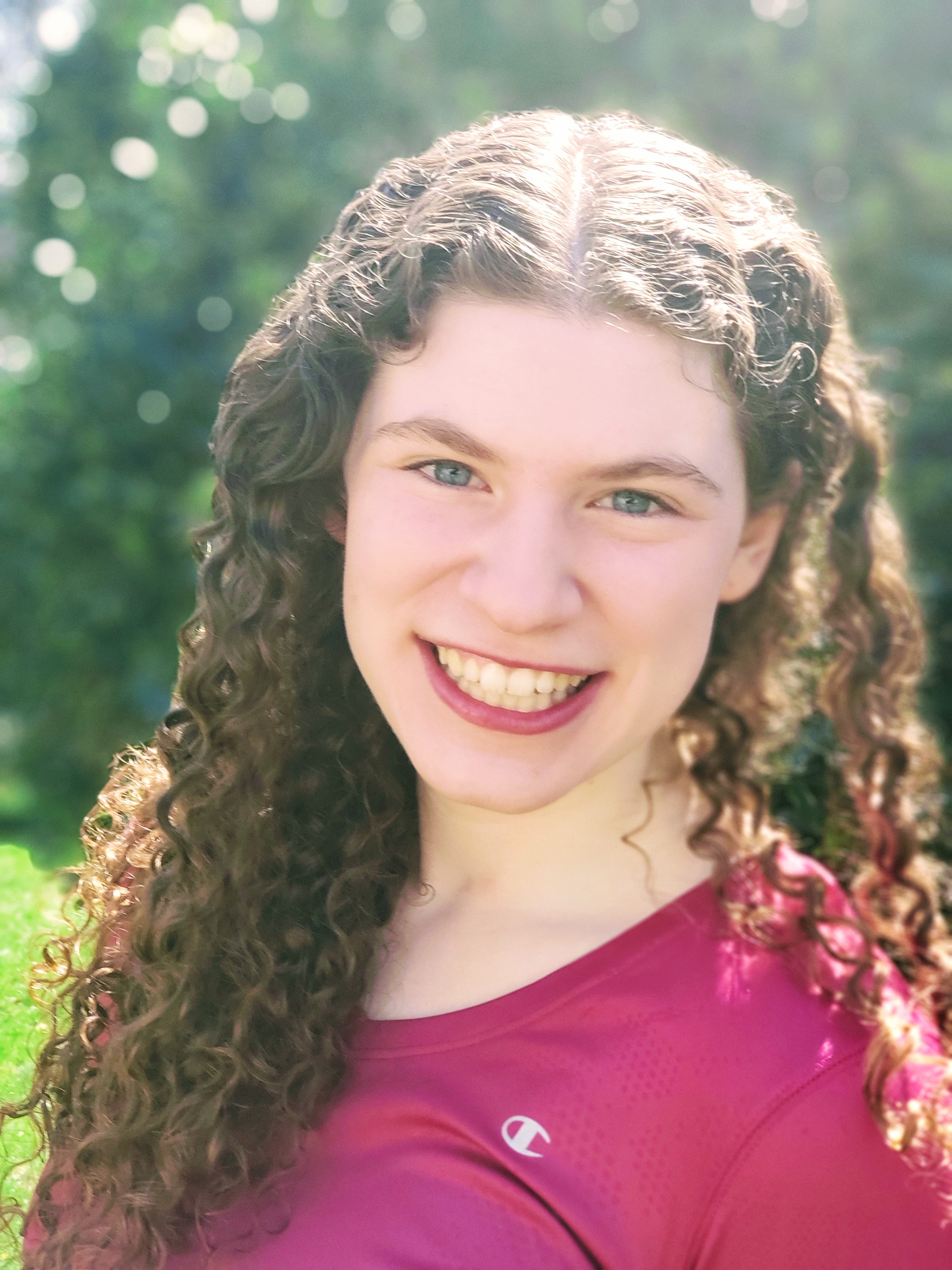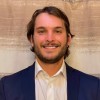avoMD: COVID-19
Doctors make decision-assisting bots for doctors
NY, NY United States COVID-19 HIT Informatics WarOnCOVID challengeAbout our project

The problem we solve: As medical knowledge grows/ updates, more physicians are turning to medical guidelines at the point of care. But they’re not finding accessible guidelines when they need them. This leads to a three-fold consequence. 1. Wasted healthcare costs 2. Patient care takes a toll: in the US, 45% of patients aren’t getting the standard of care 3. Physicians are getting burnt out trying to treat patients without the necessary tools. This problem is especially apparent for COVID-19 where recommendations for PUI (Person under investigation), testing, supportive care, and general recommendations are changing daily. Information comes from many sources including (CDC, WHO, specific institutions) in static formats. With three physicians on our team, we are experiencing this problem first-hand and we're inundated with too much information that is not accessible or usable at the point of care.
About our solution: avoMD is a suite of clinical bots that present interactive, personalized medical guidelines, and education at the point-of-care. Each clinical bot focuses on a specific disease state. We created a COVID-19 bot that conversationally asks the physician questions, and provides practical guidance based on the patient at hand. The information is updated daily based on the CDC's (and WHO's) latest guidance and presented in a readable format with educational resources, references, and the timestamp of the latest update. The app is updated using the avoMD authorship tool, which allows any doctor without a coding background to create interactive content using an intuitive graphical user interface. This provides the potential for crowdsourcing content/updates (physicians receive CME credit for authoring content) and allows institutions to personalize guidelines. The platform has a peer/institutional review system (top-down) and a robust feedback mechanism (bottom-up) to maintain validity.
Progress to date:
Over the last 3 years, we’ve uploaded 4 prototypes (each addressing a singular but separate clinical circumstance). Without spending a cent on marketing, these have been downloaded by ~36K users across the globe.
Next, we initiated an extensive clinical trial of our software at Englewood Hospital to test avoMD’s usability and its impact on outcomes for preoperative cardiac risk assessment. The first phase of our testing focused on usability, and our app was graded as “more usable than Gmail and Amazon.com” with 92% of subjects agreeing the app should replace status-quo tools. The next phase, a randomized control trial, was approved by an IRB in August and will measure the impact on outcomes.
We also received interest from ~100 physicians interested in becoming authors without compensation, we have our first paying hospital customer, SUNY Downstate, and we have partnered with Samsung Health, the second-largest hospital system in South Korea.
About Our Team

Creator: Yiela Saperstein
Location: New York
Education: Columbia University
Bio: Yiela just completed a master’s degree in biomedical engineering at Columbia University and is beginning medical school. She previously completed a bachelor’s degree in biochemistry at Barnard college. Yiela has experience creating medical devices, and recently became a finalist in the African Biomedical Engineering Consortium (ABEC) Design Competition for her global health work creating an oxygen delivery device. She also has experience in entrepreneurship and recently took part in an accelerator as part of the Taglit Excel internship program. Yiela has done research in both computational chemistry and biomedical imaging analysis. She is committed to using technological innovations to improve the healthcare system.
Title: Head of Growth and Operations
Advanced Degree(s): MS
About Team Members
Joongheum Park
Founder and Head of Product/Development, MD
Biography: Dr. Park is a practicing board-certified internal medicine physician at Beth Israel Deaconess Medical Center. He was a clinical informatics fellow at New York Presbyterian-Columbia University Medical Center (“CUMC”) and was on the executive board of the National Association of Clinical Informatics Fellows. He is also a professional developer and has been mentoring computer science classes in healthcare software at Georgia Tech. Additionally, Dr. Park leads multiple clinical AI projects in collaboration with Columbia University, Albert Einstein College of Medicine, Rutgers University, and the University of Pittsburgh. He has presented his AI and mobile health projects at national conferences held by the AMIA, the American College of Rheumatology, the Society of Hospital Medicine, and the American Psychiatric Association.
Title: Founder and Head of Product/Development
Advanced Degree(s): MD
LinkedIn:
https://www.linkedin.com/in/joongheum-pj-park-md-931070137
Yair Saperstein
CEO, MD,MPH
Biography: Dr. Saperstein is the inpatient Medicine Chief Resident at Kings County Hospital Center. He is a member of Alpha Omega Alpha (AOA), and graduated from Albert Einstein College of Medicine with distinction in research in global health and from Yeshiva College as Valedictorian. Previously, Dr. Saperstein co-founded two non-profit organizations, StartScience.org and Teach4Kids.org. He is an acclaimed classical concert pianist and has won numerous awards including semifinalist in the Dell Social Innovation Challenge, iGEM Award for Best Human Practices Advance in the Americas, and winner of UIST ACM's Symposium on User Interface Software and Technology in 2010.
Title: CEO
Advanced Degree(s): MD,MPH
LinkedIn:
https://www.linkedin.com/in/yair-saperstein-md-mph-2ba22335/
Laurence Coman
CFO, MBA
Biography: Laurence is currently a student at Columbia Business School where he is studying entrepreneurship and healthcare. Prior to Columbia, Laurence worked on the investment team at Vector Capital, a private equity firm focused on software investments. At Vector, Laurence helped evaluate and acquire enterprise software companies, in addition to serving as a Board Observer for two of the firm's portfolio companies. Prior to Vector, Laurence worked at Greenhill, an investment bank focused on M&A and restructuring. Laurence received a BS in Economics from The Wharton School and a BA in International Studies and Hispanic Studies from the University of Pennsylvania. Laurence's family is embedded in healthcare - both parents are practicing physicians, Laurence's brother is in medical school, two of his grandparents were physicians, and several aunts/uncles are also in medicine.
Title: CFO
Advanced Degree(s): MBA
Shawn Ong
Head of Medical Operations, MD
Biography: Dr. Ong is a practicing board-certified Internal Medicine physician at Yale New Haven Hospital and Clinical Informatics fellow at Yale School of Medicine and the Veterans Affairs Healthcare System. He has over a decade of experience in the areas of healthcare IT consulting, business analytics, and software engineering with companies such as Accenture and Cerner. He has founded multiple health IT companies and holds certifications in the two largest Electronic Health Record systems. Additionally, he conducts research in the areas of Health Services and Quality Improvement. Dr. Ong earned a Bachelors degree in Computer Engineering, MD from the University of Arizona with a distinction in research, and will earn in 2021 a Masters of Health Sciences degree from Yale University.
Title: Head of Medical Operations
Advanced Degree(s): MD
LinkedIn:
https://www.linkedin.com/in/shawnongmd
About Our Company
avoMD inc
Location: 554 W 173rd
Apt 2F
NY, NY 10032
US
Founded: 2018
Website: https://www.avomd.io/
Twitter: @avocadodoc
Facebook: https://www.facebook.com/avocadodoc/
Product Stage: Prototype/MVP
Employees: 3-5
How We Help Patients
While we may like to believe otherwise, doctors are only human; even doctors can get overwhelmed by the ever-growing medical knowledge. Advancements in medicine are great, but with medical knowledge expected to double every 73 days by 2020, it's no wonder that 45% of patients aren't getting the medical standard of care. That's why avoMD presents readable, relevant, short, and interactive guidelines to physicians so they can easily keep up with the latest guidelines and personalize their treatments for you.
As physicians, we ask you: Help us so we can help you.
How We Help Physicians
Lack of accessible knowledge and knowledge explosion have created significant issues for physicians that technology has yet to solve. In fact, solutions like EHRs have made matters worse for physicians and are widely credited with contributing to the highest physician burnout rates we have ever seen.
avoMD was created by physician founders to address physician needs.
First, our app delivers just bite-size protocols/guidelines specific to the patient at hand, so the physician can review only what he/she needs at the point of care. Now, doctors can have the latest evidence-based medicine at their fingertips and can be confident that they are providing the highest level of care.
Next, we also provide supporting educational tools and resources that the physician can choose to access, as we know firsthand that doctors do not like to be automated.
Last, our content is crowdsourced and written by our community of physician authors. We believe physicians should have a say in their own treatment protocols and workflows and have developed technology to enable this democratization.
How We Help Hospitals
avoMD will help hospitals improve top-line and bottom-line metrics, in addition to improving overall quality.
Besides offering distilled medical knowledge, avoMD can personalize modules to match protocols specific to each hospital.
Top-line: Enhanced adherence to protocols/guidelines can lead to lower readmissions (higher reimbursement) and higher patient volumes (improved reputation and more efficient physicians).
Bottom-line: Our app, which we estimate can save physicians over 30% of their time compared to checking guidelines (i.e., vs. UpToDate), will improve physician efficiency/satisfaction and help reduce the associated costs with physician burnout. Additionally, increased adherence to guidelines/protocols will help reduce unnecessary expenditures due to misdiagnosis, sub-optimal treatment, adverse drug reactions, and ordering of unneeded tests.
Quality: Ultimately, workflow-based access to the latest standard of care has the potential to improve overall outcomes for hospitals.
How We Help Partners
We think our solution can have a significant impact across the healthcare landscape. For example, we can help reduce costs for payors if we enable physicians to more closely follow the standard of care. Additionally, our application can be tailored to and adopted by other segments in the provider ecosystem, such as urgent care and outpatient settings as well as in nursing home and rehab facilities.
Challenge Mission
COVID Problem We Address
As medical knowledge grows/ updates, more physicians are turning to medical guidelines at the point of care. But they’re not finding accessible guidelines when they need them. This leads to a three-fold consequence. 1. Wasted healthcare costs 2. Patient care takes a toll: in the US, 45% of patients aren’t getting the standard of care 3. Physicians are getting burnt out trying to treat patients without the necessary tools. This problem is especially apparent for COVID-19 where recommendations for PUI (Person under investigation), testing, supportive care, and general recommendations are changing daily. Information comes from many sources including (CDC, WHO, specific institutions) in static formats. With three physicians on our team, we are experiencing this problem first-hand and we're inundated with too much information that is not accessible or usable at the point of care.
Our COVID Solution
avoMD is a suite of clinical bots that present interactive, personalized medical guidelines, and education at the point-of-care. Each clinical bot focuses on a specific disease state. We created a COVID-19 bot that conversationally asks the physician questions, and provides practical guidance based on the patient at hand. The information is updated daily based on the CDC's (and WHO's) latest guidance and presented in a readable format with educational resources, references, and the timestamp of the latest update. The app is updated using the avoMD authorship tool, which allows any doctor without a coding background to create interactive content using an intuitive graphical user interface. This provides the potential for crowdsourcing content/updates (physicians receive CME credit for authoring content) and allows institutions to personalize guidelines. The platform has a peer/institutional review system (top-down) and a robust feedback mechanism (bottom-up) to maintain validity.
Innovation Details
Intellectual Property Summary
We filed a U.S. provisional patent in April 2019 titled "Adaptive educational materials ("AEM"), authoring tool for AEM, and secondary service system including automated note generation: how to curate and combine content elements, utilizing rule-based logic or statistical artificial intelligence, to build personalized educational content for users in real time."
Patent Link
Filed a provisional patent, so no link available
Clinical Information
As discussed in a previous section, we have initiated an extensive clinical trial of our software at Englewood Hospital to test avoMD’s usability as well as its impact on outcomes for preoperative cardiac risk assessment. The first phase of our testing focused on usability, where our app was received an 87 on the System Usability Scoring ("SUS") scale which ranks in the top 10% of usability for technology, beating Gmail.com (84 SUS) and Amazon.com (82 SUS). Additionally, 11 of 12 subjects agreed that the app was comprehensive enough to replace status quo tools. The next phase, a randomized control trial, was approved by an IRB in August and will measure impact on outcomes - specifically accuracy of diagnosis and physician efficiency. This phase is led by Dr. Sarah Collins (Columbia University Medical Center).
We also have a preliminary agreement in place with a hospital in the Tristate area to initiate an IRB-approved clinical trial for our app in the neurology setting.
Regulatory Status
Section 3060 of the 21st Century Cures Act excludes the display/analysis of medical information and providing recommendations from the definition of a medical device (per 201(h) of the Federal Food, Drug, and Cosmetic Act). Additionally, the Cures Act mandates that physicians cannot rely primarily on these recommendations to make diagnosis/treatment decisions. Based on our research of competitor offerings, we believe that if the proper user agreement is employed whereby the user agrees not to rely solely on our software for decision-making, avoMD will not be considered a device and thus excluded from FDA regulation.
How we will use the funds raised
We intend to use the funding towards the development of our content authorship tool and to help improve our COVID-19 module and keep it updated.
Thank You
Thank you for your help in allowing us to use innovation to fight this virus!
Updates
No updates found .
Supporters
Help us find best new ideas to fund by telling us what you think. Your feedback goes straight to the team behind this project in private, so tell them what you really think.
Index Score
31
Score
0
Score
1
Likes0
Partners0
Pilots0
Follows-
This campaign has ended but you can still get involved.See options below.
Help us find best new ideas to fund by telling us what you think. Your feedback goes straight to the team behind this project in private, so tell them what you really think.



